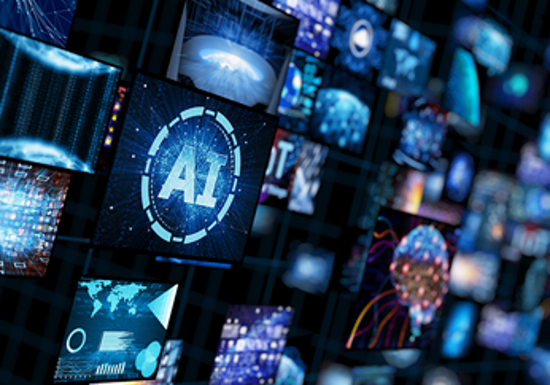In Peter Diamandis’ latest email blast he writes, “There will be two kinds of companies at the end of this decade: those that are fully utilizing AI, and those that are out of business.”
He quotes predictions from the World Economic Forum that almost 25% of all jobs will be disrupted by artificial intelligence (AI) within the next five years.
The consulting firm, PwC estimates AI will add $15.7 trillion to the world economy by 2030. And in another quote from The CEO of Stability AI, Emad Mostaque, he states that “trillion-dollar companies are shifting their whole strategy and focus” to generative AI.
Of course, science fiction authors that write about dystopian futures, often present AI as a much greater threat. It is not just going to disrupt the world of business but also will cause human extinction. But a more realistic take on AI is its impact on businesses including the following fields:
- Text Generation: Creating content is the obvious application of Large Language Model AIs. The technology could end up writing marketing content, scripts, stories, videos, advertisements, and novels. Among the candidates to achieve this are ChatGPT, Google Bard, Jasper, Copy.ai, Writesonic, and others.
- Customer Service: Tools like chatbots and messaging are incorporating AI. I recently experienced one chatbot that spouted gobbledygook when I went to the site to find out about a missing order. But other AI chatbots have been hard to discern as being anything but human generated. For businesses, the use of AI tools can lead to always-on service and rapid response to customer issues. AIs can facilitate self-service portals, provide recommendations based on a customer’s history, deliver help in multiple languages and more. Among the candidates to provide these services are AI tools from Anthropic, Cohere, Intercom, and HubSpot Chatbot.
- Writing and Debugging Software: Automating code writing, completion, and vetting is already underway using AI. Why? Because the current crop of AI tools is proving to be capable of quality testing code, handling bug fixes, and documentation. These generative AI tools use code pattern analysis to make improvements. Among these are ChatGPT, OpenAI Codex, GitHub Copilot, Codeium and AlphaCode.
- Image Generation and Editing: Deep learning AI and generative adversarial networks (GANs) are automating image generation. These technologies will likely revolutionize product image creation including branding identity, logos and innovative designs. Current AI tools in this category include Midjourney, Stable Diffusion, Adobe Firefly, DALL-E, BlueWillow and DeepAI.
- Video Generation and Editing: AI tools are revolutionizing video and film and even music. These tools can produce videos from short clips to full-length movies. They take diverse input data like images, blogs, articles, and music, and creatively combine them to produce something new. Currently available are tools like Descript, Synthesia, Kaiber and Genmo.
Where else can we find AI in the business world today?
- ProFinda is a workforce optimization platform that uses AI. It maps an organization’s skills, knowledge, expertise, connections, and availability and builds a single view of the talent pool allowing employees to grow on the job, seek out internal experts, and create more efficient teams.
- FutureScope is a company that employs AI to generate daily newsletters to connect clients with audiences, help generate targeted email lists, and convert prospects into paying customers.
- Cainthus combines computer vision and AI analytics for farmers to make data-driven decisions related to livestock. Insights gained help to optimize feed management and pen-level monitoring of dairy cow behaviours to ensure maximum welfare and milk production.
- Khanmigo is a product of the Khan Academy to provide tailored tutoring support to online learners. The Academy is using it to create customized AI tutors for every child.
One recommended immediate change for any current business states Diamandis: hire or develop a Chief AI Officer, because without one the business you currently operate or work in may be out of business in five years.









